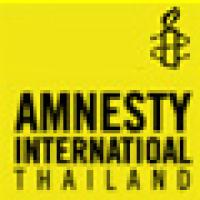color:#222222">แอมเนสตี้ อินเตอร์เนชั่นแนล
color:#222222">แถลงการณ์
color:#222222">องค์การสหประชาชาติกำหนดให้สิทธิมนุษยชนเป็นหัวใจของสนธิสัญญาซื้อขายอาวุธฉบับประวัติศาสตร์
เมื่อวันที่ 2 เมษายน 2556 รัฐบาลประเทศต่าง ๆ ในที่ประชุมองค์การสหประชาชาติ ลงคะแนนเสียงท่วมท้นสนับสนุนสนธิสัญญาควบคุมการค้าอาวุธ (Arms Trade Treaty - ATT) ซึ่งห้ามการส่งมอบอาวุธทั่วไป (conventional weapons) ไปยังประเทศอื่น กรณีที่ทราบว่าอาวุธเหล่านั้นจะถูกใช้เพื่อกระทำการหรือสนับสนุนการสังหารล้างเผ่าพันธุ์ อาชญากรรมต่อมนุษยชาติหรือสงคราม
ในที่ประชุมสมัชชาใหญ่แห่งสหประชาชาติ รัฐภาคี 154 แห่งลงคะแนนเสียงรับรองสนธิสัญญาฉบับนี้ ไม่กี่วันหลังจากอิหร่าน เกาหลีเหนือ และซีเรียแสดงเจตนาร้ายที่จะสกัดกั้นไม่ให้มีการรับรองสนธิสัญญาฉบับนี้ ประเทศทั้งสามแห่งต่างละเมิดสิทธิมนุษยชนและถูกแทรกแซงด้วยมาตรการต่าง ๆ จากองค์การสหประชาชาติ และยังออกเสียงคัดค้านสนธิสัญญาฉบับนี้ในวันนี้ โดยมีรัฐภาคีที่งดออกเสียงอีก 23 แห่ง
ไบรอัน วูด (Brian Wood) ผู้จัดการแผนกควบคุมอาวุธและสิทธิมนุษยชน แอมเนสตี้อินเตอร์เนชั่นแนล กล่าวระหว่างอยู่ในที่ประชุม
color:#222222">องค์การสหประชาชาติ กรุงนิวยอร์กว่า โลกเฝ้ารอสนธิสัญญาประวัติศาสตร์ฉบับนี้มาเป็นเวลานาน หลังการรณรงค์ต่อเนื่องหลายปี รัฐส่วนใหญ่เห็นชอบและรับรองสนธิสัญญาระดับโลก ซึ่งจะช่วยป้องกันไม่ให้มีการขนย้ายอาวุธไปยังประเทศหนึ่ง ในกรณีที่อาวุธเหล่านั้นจะถูกใช้เพื่อการทารุณกรรม
“แม้ว่าอิหร่าน เกาหลีเหนือ และซีเรียแสดงเจตนาร้ายที่จะขัดขวางสนธิสัญญาฉบับนี้ แต่ประเทศส่วนใหญ่ในโลกแสดงความสนับสนุนอย่างเข้มแข็งต่อสนธิสัญญาที่ช่วยชีวิตมนุษย์ และมุ่งคุ้มครองสิทธิมนุษยชน”
สนธิสัญญาฉบับนี้ยังกำหนดให้รัฐบาลทุกประเทศประเมินความเสี่ยงในการขนย้ายอาวุธ ยุทธภัณฑ์หรือส่วนควบอาวุธต่าง ๆ ไปยังประเทศอื่น กรณีที่อาจถูกนำไปใช้เพื่อกระทำการหรือสนับสนุนการละเมิดอย่างร้ายแรงต่อกฎบัตรมนุษยธรรมและกฎบัตรสิทธิมนุษยชนระหว่างประเทศ กรณีที่มีความเสี่ยงค่อนข้างชัดเจนและไม่อาจบรรเทาได้ รัฐเหล่านั้นจะต้องไม่ส่งมอบอาวุธให้
วิดนีย์ บราวน์ (Widney Brown) ผู้อำนวยการอาวุโสด้านกฎหมายแหละนโยบายระหว่างประเทศ แอมเนสตี้ อินเตอร์เนชั่นแนล เปิดเผยว่า เมื่อคำนึงถึงผลประโยชน์มหาศาลทางเศรษฐกิจและอำนาจทางการเมืองที่เกี่ยวข้องกับบรรดาประเทศผู้ผลิตและส่งออกอาวุธรายใหญ่ของโลก สนธิสัญญาฉบับนี้นับเป็นสัญญาณสนับสนุนภาคประชาสังคมที่พยายามรณรงค์เพื่อช่วยชีวิตมนุษย์ และลดความทุกข์ยากของมนุษย์ รวมทั้งรัฐบาลที่รับฟังเสียงเรียกร้องเหล่านี้
“ในช่วงสี่ปีข้างหน้า มูลค่าการค้าในแต่ละปีของอาวุธ ยุทธภัณฑ์หรือส่วนควบอาวุธต่าง ๆ จะสูงเกินกว่าหนึ่งแสนล้านเหรียญ แต่ในวันนี้ต้องถือว่ารัฐต่าง ๆ ให้ความสำคัญกับมนุษย์และความปลอดภัยเป็นเบื้องต้น”
ขบวนการสิทธิมนุษยชนที่ประกอบด้วยแอมเนสตี้ อินเตอร์เนชั่นแนล มีส่วนสำคัญในการผลักดันภาคประชาสังคมและได้รับความสนับสนุนจากผู้ได้รับรางวัลโนเบลสาขาสันติภาพตั้งแต่ช่วงต้นทศวรรษ 1990 และถือว่าประสบความสำเร็จในการผลักดันให้เกิดกฎหมายระดับโลกที่เข้มแข็งและมีผลบังคับใช้เพื่อควบคุมการส่งมอบอาวุธระหว่างประเทศ ทั้งนี้เพื่อขัดขวางไม่ให้มีการส่งมอบอาวุธเพื่อการทารุณกรรมและการละเมิดสิทธิ
สนธิสัญญาฉบับนี้ได้รับการรับรองภายหลังการพิจารณาในที่ประชุมองค์การสหประชาชาติกว่าหกปี เริ่มตั้งแต่ธันวาคม 2549 ตอนที่ที่ประชุมสมัชชาใหญ่แห่งสหประชาชาติเห็นชอบที่จะปรึกษาหารือกับรัฐภาคีต่าง ๆ เกี่ยวกับความเป็นไปได้ ขอบเขต และปัจจัยที่เกี่ยวข้องกับสนธิสัญญา ทั้งนี้เพื่อควบคุมการส่งมอบอาวุธทั่วไประหว่างประเทศ
รัฐภาคีจำนวนมากแสดงท่าทีในเชิงบวกในที่ประชุมสมัชชาใหญ่แห่งสหประชาชาติ ถือว่าเป็นการให้ความสำคัญในเบื้องต้นกับกฎบัตรมนุษยธรรมและกฎบัตรสิทธิมนุษยชน
สนธิสัญญาที่ผ่านการรับรองฉบับนี้ ครอบคลุมอาวุธทั่วไปหลัก ๆ รวมทั้งอาวุธขนาดเล็กและอาวุธเบาซึ่งเพิ่มจำนวนในประเทศที่มีความขัดแย้งในระดับต่ำ ประเทศที่มีการขัดกันด้วยอาวุธและมีการบาดเจ็บล้มตายของพลเรือนเป็นจำนวนมาก
ไบรอัน วูด กล่าวเสริมว่าเช่นเดียวกับในการเจรจาสนธิสัญญาทุกฉบับ เราไม่ได้สิ่งที่ต้องการทั้งหมด อย่างเช่น สนธิสัญญาฉบับนี้ยังมีเนื้อหาไม่ครอบคลุมยุทธภัณฑ์ทั้งหมด แต่ก็มีเงื่อนไขให้แก้ไขเพิ่มเติมได้ และยังมีหลักการสำคัญที่หนักแน่นที่จะสถาปนาระบบควบคุมการส่งมอบอาวุธระหว่างประเทศ ไม่ให้อาวุธตกไปถึงมือผู้ที่ใช้เพื่อก่อกรรมทำเข็ญ
“สะท้อนให้เห็นว่า เมื่อประชาคมโลกมีแนวคิดที่ดีร่วมกันที่จะช่วยให้โลกดีขึ้น และหากเราสามารถรวมตัวกันได้ เราจะสามารถทำให้เกิดการเปลี่ยนแปลงและความแตกต่างอย่างแท้จริงในระดับโลก”
สนธิสัญญาฉบับนี้จะเปิดให้มีการลงนามและให้สัตยาบันในวันที่ 3 มิถุนายน 2556 เป็นต้นไปในที่ประชุมสมัชชาใหญ่แห่งสหประชาชาติ และสนธิสัญญาฉบับนี้จะมีผลบังคับใช้หลังจากมีรัฐให้สัตยาบันครบ 50 ประเทศแรก
AMNESTY INTERNATIONAL
PRESS RELEASE
2 April 2013
UN puts humanrights at heart of historic Arms Trade Treaty
Today, governments at the United Nationsadopted by a wide margin an Arms Trade Treaty that will prohibit states from transferring conventional weapons to countries when they know those weapons will be used to commit or facilitate genocide, crimes against humanity or war crimes.
In the UN General Assembly 154 states voted to adopt the treaty just days after Iran, North Korea and Syria – three human rights-abusingcountries under some form of UN sanctions – staged a cynical move to try and block it. All three voted against the treaty today and 23 other states abstained.
“The world has been waiting a long time forthis historic treaty. After long years of campaigning, most states have agreed to adopt a global treaty that can prevent the flow of arms into countries where they will be used to commit atrocities,” said Brian Wood, Head of Arms Control and Human Rights at Amnesty International, from the UN conference in New York.
“Despite Iran, North Korea and Syria’sdeeply cynical attempt to stymie it, the overwhelming majority of the world’s nations have shown resounding support for this lifesaving treaty with human rights protection at its core.”
The treaty also obligates all governmentsto assess the risk of transferring arms, ammunition or components to another country where they could be used to commit or facilitate serious violations of international humanitarian and human rights law. Where that overriding risk is real and cannot be mitigated, states have agreed the transfer will not go forward.
“When you think of the huge economic interest and the political power in play for the big arms producers and exporters, this treaty is a tribute to both civil society who championed the idea to save lives and reduce human suffering as well as the governments who heeded that call,” said Widney Brown, Senior Director of International Law and Policy at Amnesty International.
“In the next four years, the annual trade in conventional weapons, ammunition and components and parts will exceed $100 billion. But today, states have put human beings and their security first.”
The Amnesty International human rights movement was instrumental in civil society and Nobel Peace Laureate efforts since the early 1990s toachieve robust, legally binding global rules on international arms transfers to stem the flow of arms that fuel atrocities and abuse.
The treaty was adopted after more than six years of UN deliberations – a process that began in December 2006 when the General Assembly agreed to consult all states on the feasibility, scope and parameters of a treaty to regulate the international transfer of conventional arms.
A record number of states responded to theUN Secretary General, almost all of them positively. Human rights and humanitarian law were put at the top of the list of criteria.
The scope in the adopted treaty covers majorcategories of conventional arms, including small arms and light weapons which proliferate in countries with low-level conflicts, armed violence and a massive number of civilian casualties.
“As in all treaty negotiations, we did notget everything that we wanted, so for example ammunition is not fully included in all the treaty provisions, but since this treaty can be amended and has many strong rules it provides a firm foundation on which to build an international system to curb the flow of arms to those who would commit atrocities,” said Wood.
“This shows that when members of the publiccome up with a really good idea that will help make the world better and get organized, they really can make it happen and make a difference on a global scale.”
The treaty will be opened for signaturesand ratification on 3 June 2013 at the UN General Assembly and will enter into force shortly after it has been ratified by 50 states.

